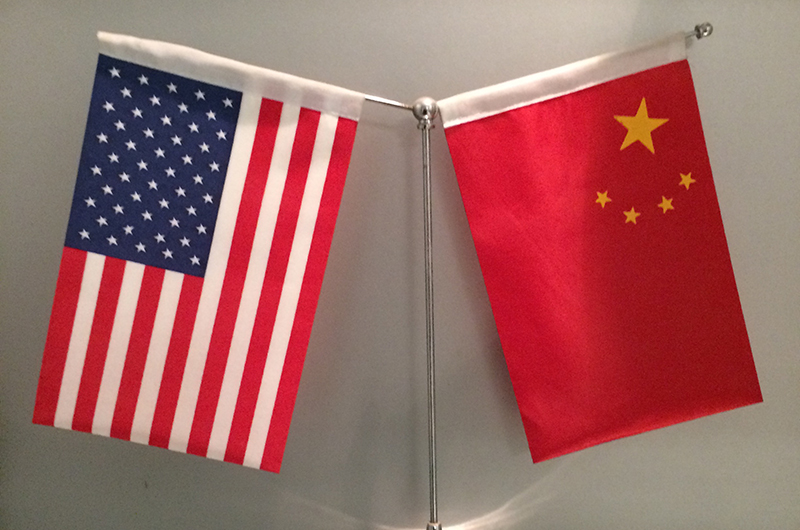by Afi Yeboah, Greenheart Travel Homestay Teacher in China
Day 2第二天 Dì èr tiān
Ni Hao Family and Friends. It’s me again, 叶飞飞Yèfēifēi (affectionately known as Fifi in America), and this is my blog post about Day 2 in Beijing, China.
To continue where we left off, I was headed to orientation with Greenheart Travel’s partner company, “Bridge For Education & International Travel.” I am participating in their “Homestay in China” program. Upon settling in the meeting room, one of the first things I noticed was how they serve tea in Beijing.
Chao He, my B.E.I.T. representative, explained to me that they don’t add anything to their tea in Beijing. No sugar, honey, ice or milk! What’s served is just the hot water and bag less tea leaves. Hot water is also served with every meal, as opposed to the way cold beverages are served with meals in the U.S. Interesting stuff.
So Chao and her colleagues gave me a really great “Post Arrival Training” book, which went over a lot of important cultural aspects of China, but I will briefly cover two.
About the Money:
Chinese currency is called “Renminbi (people’s money). It is abbreviated as RMB. Yuan is a unit of Renminbi, and the smaller denominations are called jiao and fen.
1 yuan = 10 jiao = 100 fen
As far as spoken Chinese, yuan is called kuai and jiao is called mao.
When shopping, they tell me to divide the RMB amount by 5 to get the approximate USD amount. Meaning, if something is priced as 100RMB, its about $20 bucks or less back home.
(The actual conversion right now is 1 US Dollar equals 6.46 Chinese Yuan, according to Google.)
No Love?:
As we continued to talk about cultural differences, one of the most memorable differences was their expression of love.
In Chinese class in high school with Mr. Zhang, and even my Mandarin courses in college with Wang Laoshi and Lee Laoshi, I remember learning the phrase “Wo Ai Ni”, which means “I love you” in Mandarin Chinese.
However, I probably won’t ever hear “Wo Ai Ni” here in Beijing! Chao and Bella from B.E.I.T. explained to me that in China, you rarely say “I Love You,” not even to your parents.
I said “Bella, do you ever say I love you to your parents?” Laughing, she says “No, never!”
Boy, I was shocked. In America, I say “I love you” to someone every single day. In every conversation with all of my family members and even with my close friends, we exchange our “I love you’s” at the end of every single one of our conversations.
Chao explained to me that in China, people only say “I love you” to their parents during very special occasions, maybe on Birthdays, Mother’s Day, Father’s Day, and wedding speeches. The reason being, China is a country where the people don’t like to show their emotions.
They don’t openly display their affection; they tend to keep it all inside. Although they may have love in their hearts, typically, they won’t verbally express it. I thought this was fascinating.
Unlucky Number 4:
When we were leaving orientation to get food at a local mall, I noticed something else. The elevators in China skip the number 4. (They also use the negative dash symbol to indicate their ground and basement floors.)
The number “4” is considered to be unlucky in some parts of China, and therefore omitted in some Chinese buildings. Why? Because in Chinese, 4,四 is pronounced “sì” which sounds a lot like the Chinese word for death “sǐ” 死.
Cool. So on our way to Phoenix Galleria, 凤凰汇, I spied a 7-Eleven which I was amazed that they had here. Even more amazing was the fact that the gallery had an H&M. If you know me at all, you know I love love love to shop, so I can’t wait to go back in there. We managed to grab food from the food court and I had the most delicious Chicken and Rice dish.
People continue to ask me how the food is here and I must say it hasn’t been too bad at all. I’ll talk about more about it later.
We left the mall and Bella and I took the Metro to the Historical Hutongs, which are narrow streets and alleys filled with shops, commonly associated with Beijing, and are considered to be an important cultural element in this city.
Finally, Bella takes me to meet my host family and I get to see where I will be living. I interact with them more in Day 3 in Beijing, so I will discuss it all in my next blog post. Stay Tuned!
Until Next Time ☺
叶飞飞Yèfēifēi






Didn’t know the ‘I love you’ details of Chinese culture! I feel the same way, personally–I thought I was the only one.
Thanks for sharing, Afia!